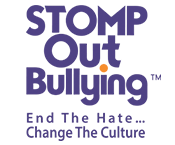BULLYING
Alexander City Schools takes bullying, harassment, and intimidation seriously. It will not be tolerated!
What is bullying?
Bullying, harassment, and intimidation are intentional verbal, written and/or physical conduct or an intentional electronic communication that creates a hostile educational environment by substantially interfering with a student’s educational benefit, opportunity and performance, or with a student’s physical or psychological well-being and is as follows:
Motivated by an actual or perceived personal characteristic, including race, national origin, marital status, sex, sexual orientation, gender identity, religion, ancestry, physical attributes, socioeconomic status, familial status or physical or mental ability or disability
Threatening or serious intimidation
Occurs on school property, at a school activity or event or on a school bus
Substantially disruptive to or interfering with the orderly operation of a school
“Electronic communication” means a communication transmitted using an electronic device, including but not limited to telephone, cellular phone, or a computer or pager.
Kids who know what bullying is can better identify it. They can talk about bullying if it happens to them or others. Kids need to know ways to safely stand up to bullying and how to get help. Encourage kids to speak to a trusted adult if they are bullied or see others being bullied. The adult can give comfort, support, and advice, even if they can’t solve the problem directly. Encourage the child to report bullying if it happens. Talk about how to stand up to kids who bully. Give tips, like using humor and saying “stop” directly and confidently. Talk about what to do if those actions don’t work, like walking away. Talk about strategies for staying safe, such as staying near adults or groups of other kids. Urge them to help kids who are bullied by showing kindness or getting help.
Parents, school staff, and other caring adults have a role to play in preventing bullying. They can:
- Help kids understand bullying.
- Talk about what bullying is and how to stand up to it safely.
- Tell kids bullying is unacceptable.
- Make sure kids know how to get help.
Parents should also make sure they do the following...
- Keep the lines of communication open.
- Check in with kids often.
- Listen to them.
- Know their friends, ask about school and understand their concerns.
- Encourage kids to do what they love. Special activities, interests, and hobbies can boost confidence, help kids make friends, and protect them from bullying behavior.
- Model how to treat others with kindness and respect.
How to Report Bullying
If you are a student victim, the parent/guardian of a student victim, a close adult relative of a student victim, or a school staff member and wish to report an incident of alleged bullying, harassment or intimidation, use the form link for the applicable school. complete this form.
These forms are to report alleged bullying, harassment, or intimidation that occurred on school property; at a school-sponsored activity or event off school property; on a school bus; or in the current school year.
In addition to completing the school form, contact the school for additional information or assistance. If a threat of suicide is reported, the principal/designee will inform the parent or guardian.
Bullying, harassment and intimidation are serious and will not be tolerated!








